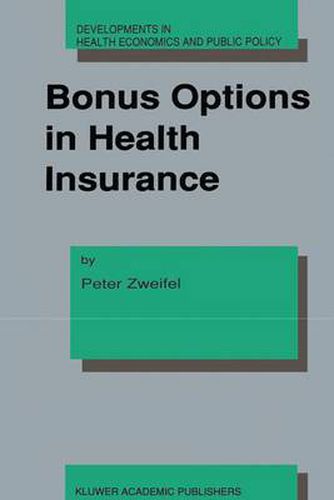Readings Newsletter
Become a Readings Member to make your shopping experience even easier.
Sign in or sign up for free!
You’re not far away from qualifying for FREE standard shipping within Australia
You’ve qualified for FREE standard shipping within Australia
The cart is loading…






This title is printed to order. This book may have been self-published. If so, we cannot guarantee the quality of the content. In the main most books will have gone through the editing process however some may not. We therefore suggest that you be aware of this before ordering this book. If in doubt check either the author or publisher’s details as we are unable to accept any returns unless they are faulty. Please contact us if you have any questions.
Confronted with the continuing cost expansion in the health care sector, policy makers face a dilemma: limiting moral hazard in medical care requires that consumers participate in the cost, yet copayment is strongly resisted by today’s socially insured. Thus, the experiences of three private German health insurers will be of interest to physicians, social scientists, and policy makers. Insurer A writes conventional plans with deductibles and coinsurance; B pays back three-monthly premiums as a fixed rebate for no claims; while C runs an experience-rated bonus system starting with a rebate of three-monthly premiums for the first year without a claim, reaching a maximum of five after three years. While both rebates and bonuses are quite popular among insureds, this study shows that bonus options are particularly effective in limiting the demand for ambulatory and even hospital care. But what about adverse effects on health caused by the desire to save one’s bonus? On this issue, there is some surprising empirical evidence.
$9.00 standard shipping within Australia
FREE standard shipping within Australia for orders over $100.00
Express & International shipping calculated at checkout
This title is printed to order. This book may have been self-published. If so, we cannot guarantee the quality of the content. In the main most books will have gone through the editing process however some may not. We therefore suggest that you be aware of this before ordering this book. If in doubt check either the author or publisher’s details as we are unable to accept any returns unless they are faulty. Please contact us if you have any questions.
Confronted with the continuing cost expansion in the health care sector, policy makers face a dilemma: limiting moral hazard in medical care requires that consumers participate in the cost, yet copayment is strongly resisted by today’s socially insured. Thus, the experiences of three private German health insurers will be of interest to physicians, social scientists, and policy makers. Insurer A writes conventional plans with deductibles and coinsurance; B pays back three-monthly premiums as a fixed rebate for no claims; while C runs an experience-rated bonus system starting with a rebate of three-monthly premiums for the first year without a claim, reaching a maximum of five after three years. While both rebates and bonuses are quite popular among insureds, this study shows that bonus options are particularly effective in limiting the demand for ambulatory and even hospital care. But what about adverse effects on health caused by the desire to save one’s bonus? On this issue, there is some surprising empirical evidence.